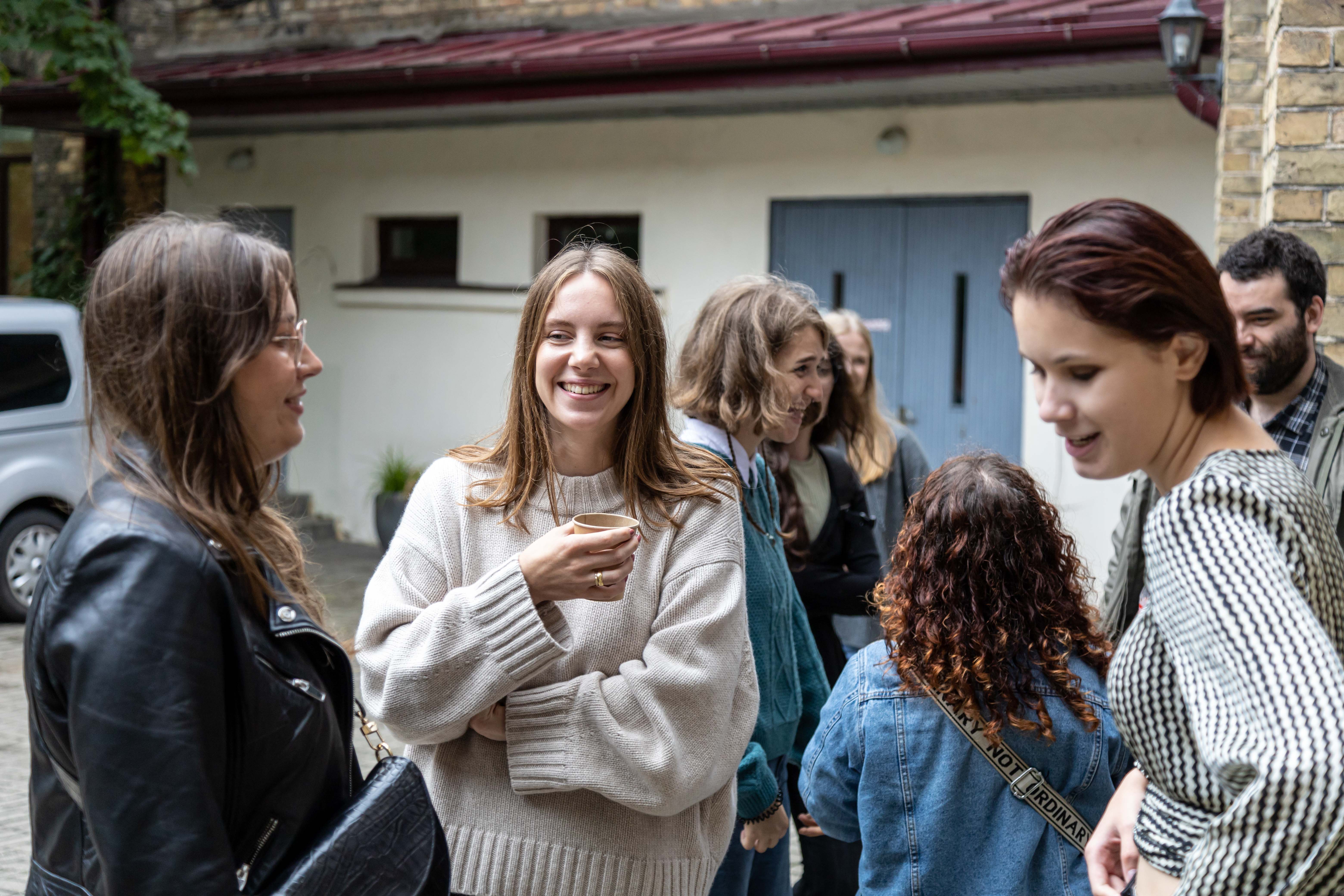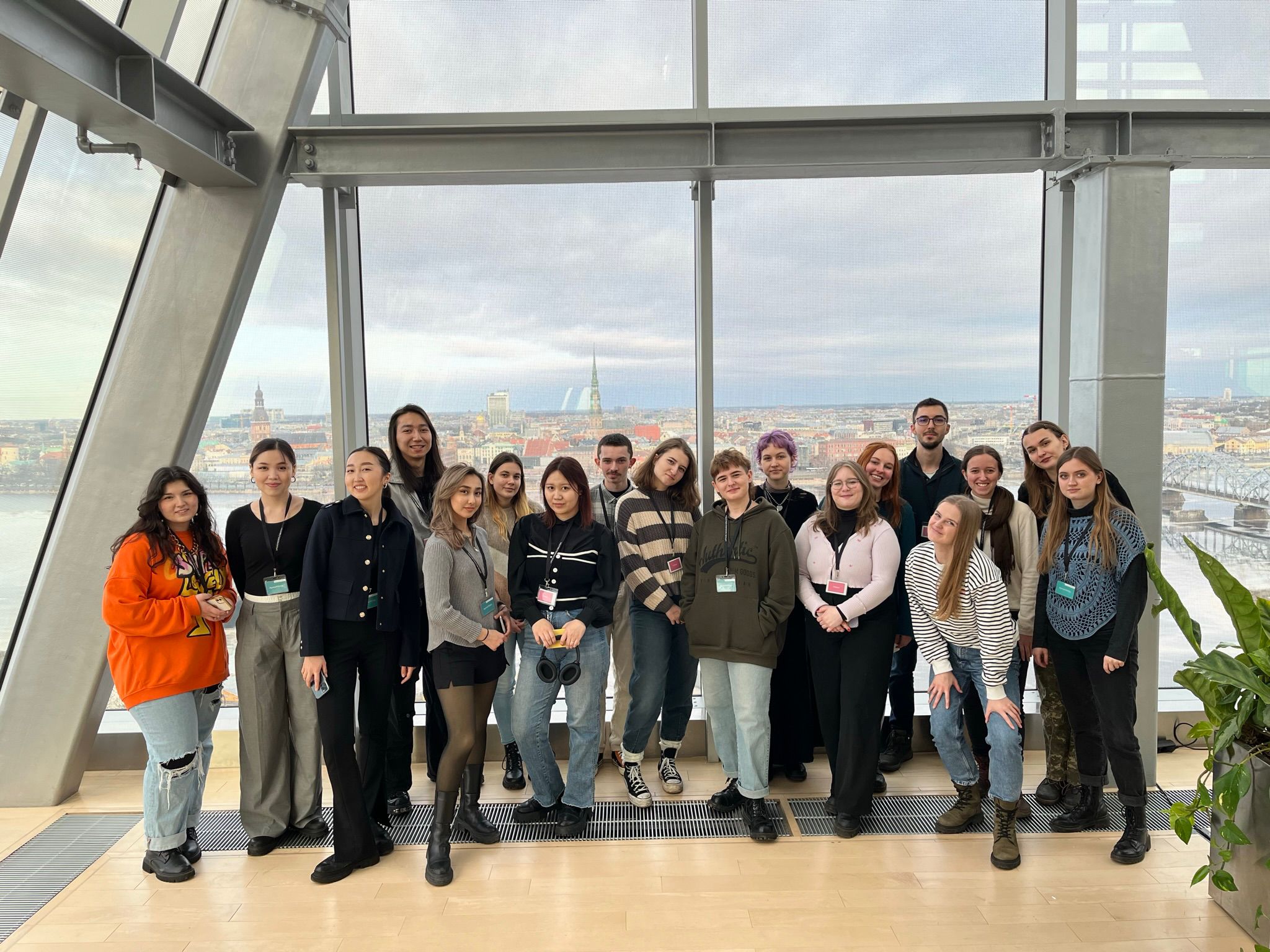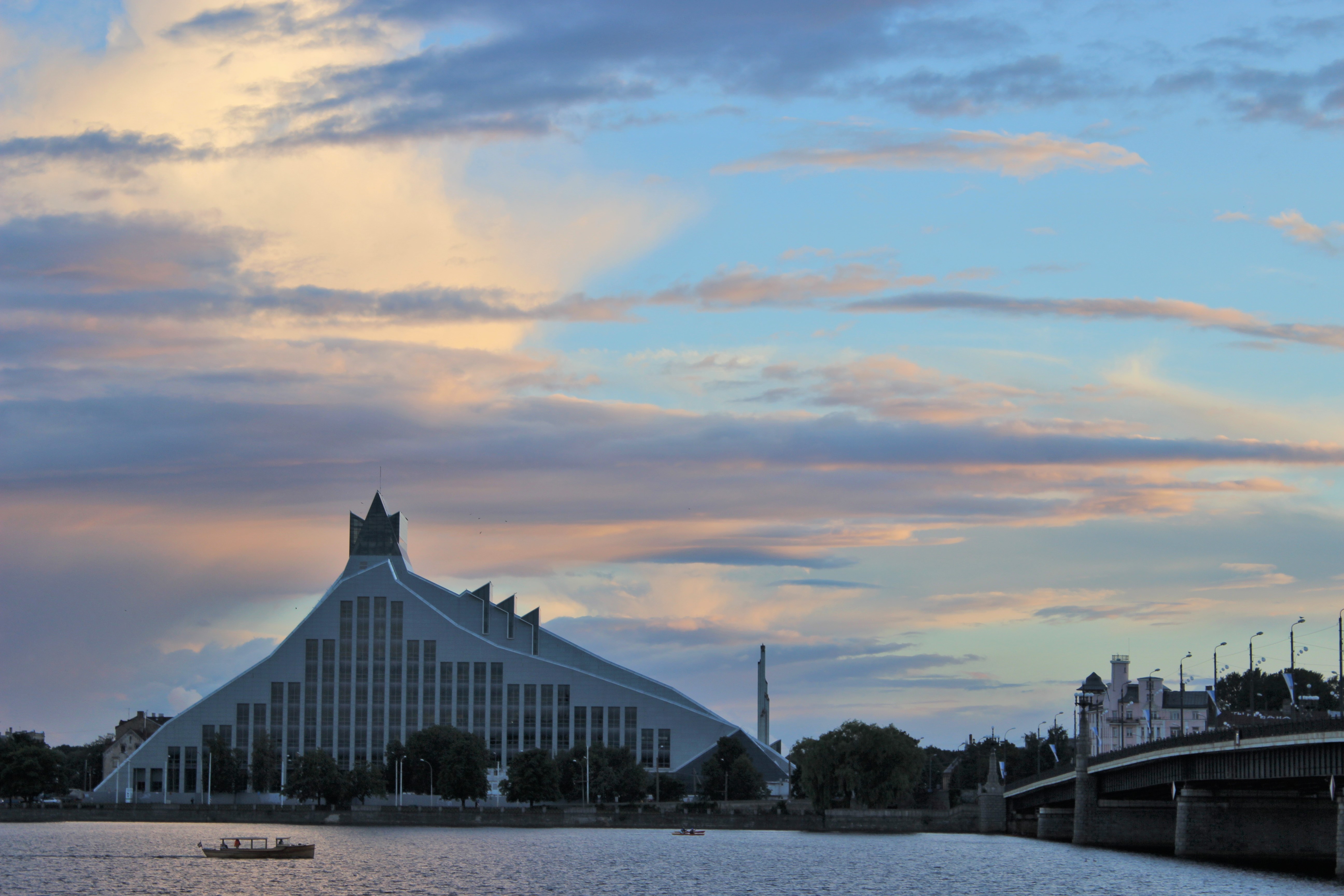Information about studies
The Latvian Academy of Culture (the LAC in short) is an interdisciplinary higher education institution of culture and arts and a centre for cultural research, artistic work and creative entrepreneurship. It is a small yet extremely open and welcoming higher education institution.
What sets us apart is our willingness to organise communication in studies, research and life of our community in a very warm and personal way. During your stay at the LAC you will not only have the opportunity to hang out with your fellow students in many of the courses and outside curriculum activities, but also receive an individual approach from the staff members and professors.
Orientation week and registration for studies
ORIENTATION WEEK AT THE LATVIAN ACADEMY OF CULTURE
The Orientation is an introductory week for all the international students of the Latvian Academy of Culture that is organized by the Erasmus+ Coordinator in close collaboration with the Students' Council (LKA SP). It takes place a week before the official beginning of the study period. It is not a mandatory requirement to attend the orientation week, but you do not want to miss it.
During the week international students get familiar with the most important details of student life in Riga starting from the Academy campus to Latvian folk traditions, to Riga night life.
The programme and registration form for the Orientation Week is usually sent out near the beginning of the semester.
 |  |
.jpeg) |  |
REGISTATION FOR COURSES
International students do not have to register for their chosen courses at the Latvian Academy of Culture. This is done automatically by the Erasmus+ Coordinator of the Latvian Academy of Culture based on the information in their submitted and signed Learning Agreements.
The course timetable is usually sent out to students near the beginning of the semester. If there are some courses that a student has chosen, but for some reason or another, the course is not available, students are welcome to choose another course within the first two weeks of the semester by reporting on the changes to the Erasmus+ Coordinator of the Latvian Academy of Culture. Changes in the Learning Agreement have to be made accordingly.
Study calendar
AUTUMN SEMESTER
Orientation Week 25/08/2025– 31/08/2025
Study Semester 01/09/2025 – 25/01/2026
Latvian Independence Day (official holiday) – 17/11/2025 and 18/11/2025
Winter Holidays 22/12/2025- 01/01/2026
Exam Period 02/01/2026 - 25/01/2026
SPRING SEMESTER
Orientation Week 26/01/2026 – 01/02/2026
Study Semester 02/02/2026 – 21/06/2026
Easter Holidays 03/04/2026 - 06/04/2026
Labour Day (official holiday) - 1/05/2026
Restoration of Independence of Latvia (official holiday) - 4/05/2026
Exam Period – 25/05/2026 –21/06/2026
e-Learning Platform Moodle
Most of the study process outside classrooms takes place on the eLearning Platform Moodle. There you will be able to locate all your courses, course programmes, reading materials, presentations links to online classes and other useful data related to the study process at the Latvian Academy of Culture.
At the beginning of the semester, each student will receive their eLearning Platform credentials on their respective e-mail.
To access your eLearning Platform profile: https://estudijas.lka.edu.lv/
In case of forgotten password, missing courses or some technical difficulties please contact the eLearning Platform Specialist of the Latvian Academy of Culture Paula Tāre paula.tare@lka.edu.lv.
Learning expectations
COURSE LOAD
- Most courses are 6 ECTS (study load of 32 academic hours)
- Fulltime workload for one semester = 30 ECTS
- Regular workload for exchange students: 4 or 5 courses (24 – 30 ECTS)
FORMS OF STUDY
Basic forms of studies are lectures, seminars, individual work and group work in class of 5 to 15 students. Each term is followed by the examination period (in January for the autumn semester or in June for the spring semester). The forms of assessment are either oral (oral tests and presentations) or written (essays, written tests and examinations) exams.
REQUIREMENTS FOR PASSING A COURSE
For a successful completion of the course, students have to attend at least 75% of the classes if the lecturer has not specified otherwise. In order to pass the final exam, students have to receive a positive mark on the scale from 10 to 4. If the student receives a mark on the scale from 3 to 1, he/she has failed the course automatically. After failing the exam, the student has the right to take it two more times.
ASSESSMENT
The knowledge of students is assessed according to a 10 point system. The Latvian Academy of Culture uses also the ECTS system.
Achievement level | Grade | Meaning | Approx. ECTS grade |
very high | 10 | with distinction | A |
9 | excellent | A | |
high | 8 | very good | B |
7 | good | C | |
medium | 6 | almost good | D |
5 | satisfactory | E | |
4 | almost satisfactory | E/FX | |
low | 3–1 | unsatisfactory | Fail |
TRANSCRIPT OF RECORDS
At the end of the semester the Erasmus Coordinator of the Latvian Academy of Culture prepares and issues the Transcript of Records including all courses with the corresponding number of ECTS and grades within 4 weeks after the official end of the examination period. The Transcript of Records is sent to each student personally via their e-mail address.
Libraries
LIBRARY OF THE LATVIAN ACADEMY OF CULTURE
The Library of the Latvian Academy of Culture was founded in 1991 together with the foundation of the Latvian Academy of Culture itself. The library collection includes printed materials and electronic resources, including a vast collection of Latvian press, as well as valuable printed works in English, German, Russian, Polish, Scandinavian and other languages. A large contribution to the creation of the collection is made by private donations from the personal libraries of academics and researchers, and other cultural workers, as well as by Latvian organizations in exile.
In accordance with its task and goal the library of the Latvian Academy of Culture provides students and teachers with the base for studies and research work, collects and stores unique works of literature in the fields of philology, religious history, cultural history, ethics, philosophy, sociology, folklore, history, literary studies, performing arts, cinema and fine arts.
The studens of the Latvian Acadmey of Culture have at their disposal:
- student workstations;
- computer workstations with free access to the Internet, electronic catalogues and databases;
- free Wi-Fi;
- printing, scanning and copying services.
Available databaseshttps://search.ebscohost.comThe Electronic Catalogue of the LAC LibraryLAC Bachelor's and Master's thesis database |
| Open Access resourcesCORE is the world’s largest collection of open access research articles, providing access to nearly 25 million free full - text publications.Open Research Library open access e-book platform. It offers access to more than 20,000 books published worldwide.OAPENOnline Dictionary of the Social SciencesOpen Access Research Database international Journal of Scientific and Research PublicationsOpen Music Library |
| Working HoursMonday 9:00-18:00 |
| Address: 24 Ludzas Street, 2nd Floor (separate entrance from the yard) E-mail: biblioteka@lka.edu.lv Phone no.: +371 67114801 |
THE NATIONAL LIBRARY OF LATVIA
 | Students of the Latvian Academy of Culture may also subscribe to the National Library of Latvia to get access to its wide collection of materials. The collection of the National Library of Latvia comprises 4,5 million units, embracing all branches of science, its basic profile being Social Sciences and the Humanities. The library offers its readers access to the collection of rare books and manuscripts, as well as to various maps, sound recordings, graphic documents, small prints, and periodicals. The emphasis of the library activities is laid on supporting higher education, research, and life-long education. |
At the moment the National Library of Latvia is open to public, but continues providing remote access to its digital resources and e-services. The Digital Library of NLL has 12 collections. In addition, more than 20 full-text foreign subscribed databases, the National Encyclopaedia, as well as lecture, discussion, conference, reading and other audio and video content on NLL social networks are available for study and research purposes.
In order to register as an NLL Reader, students have to fill in a request form on the spot at Mūkusalas iela 3, Ground floor, or REGISTER ONLINE. After registering, students will receive a Reader's Card, which allows access to all Library services.
| Working HoursMonday 11:00–19:00 Tuesday 11:00–19:00 Wednesday 11:00–19:00 Thursday 11:00–19:00 Friday 11:00–19:00 Saturday 10:00–17:00 Sunday closed
|
| Address: 3 Mūkusalas Street Welcome Desk E-mail: welcomedesk@lnb.lv Phone no.: +371 67806135, +371 25627640
The library is closed to visitors on public holidays, on cleaning days (the second Monday of each month), and during nationally significant events. |

